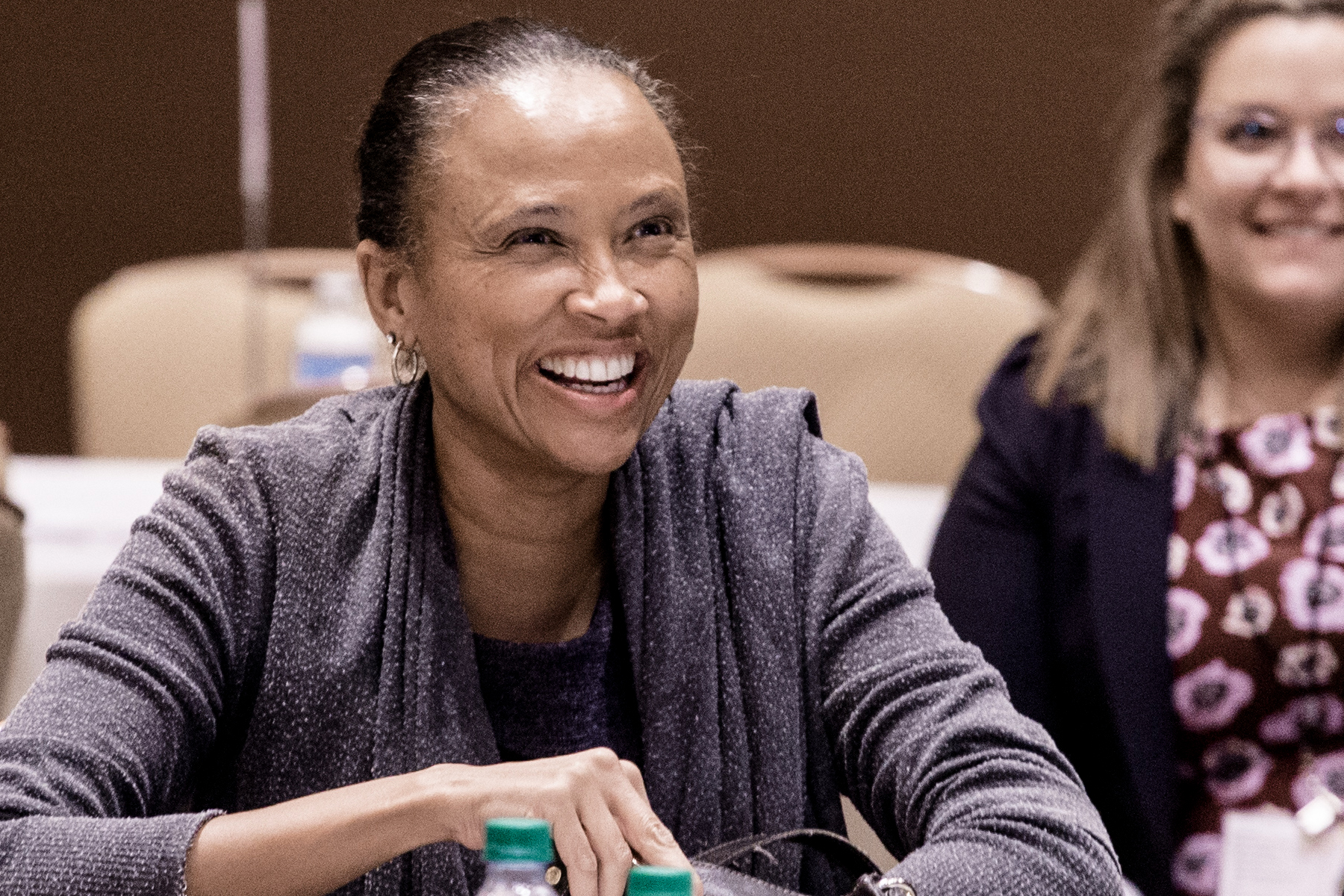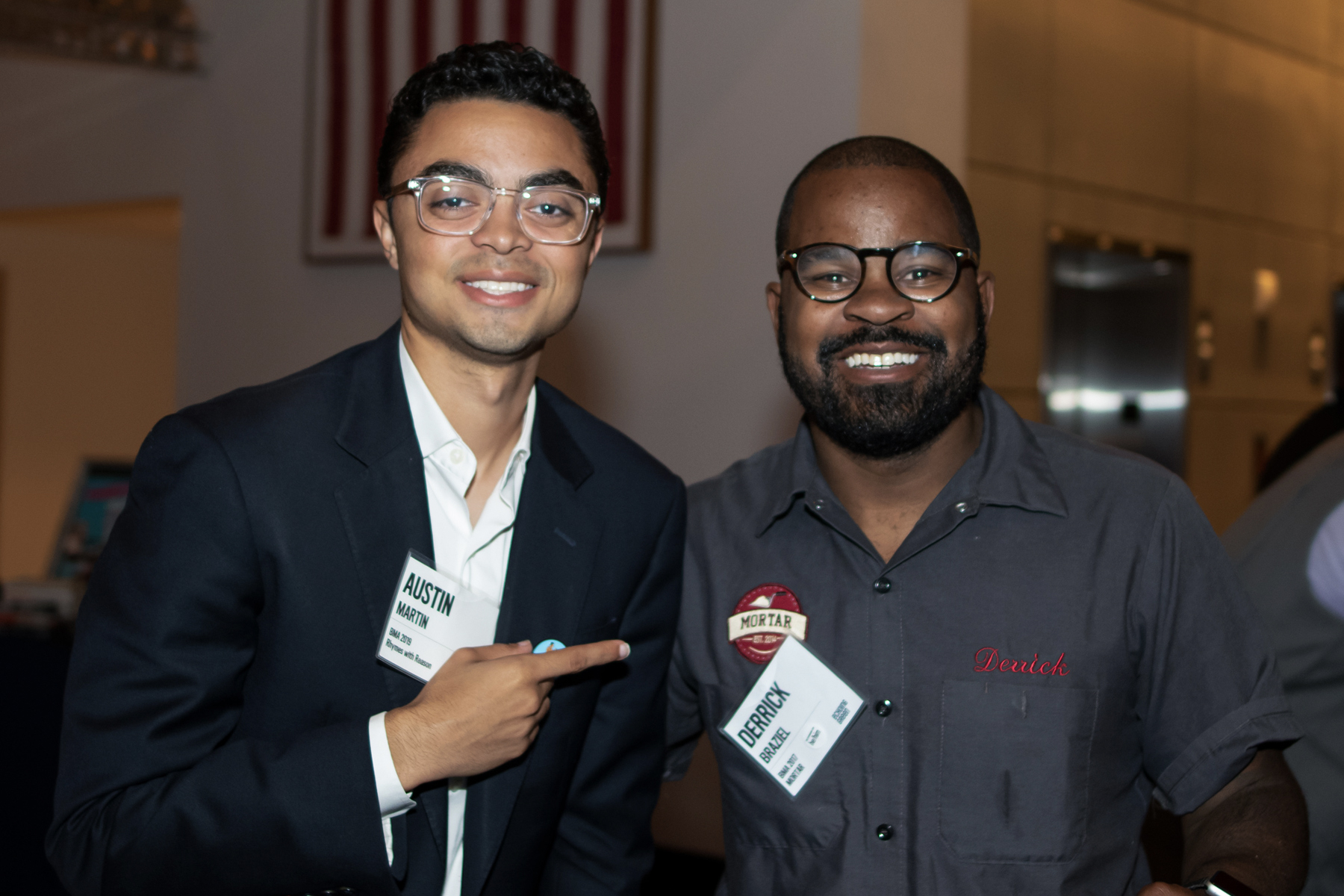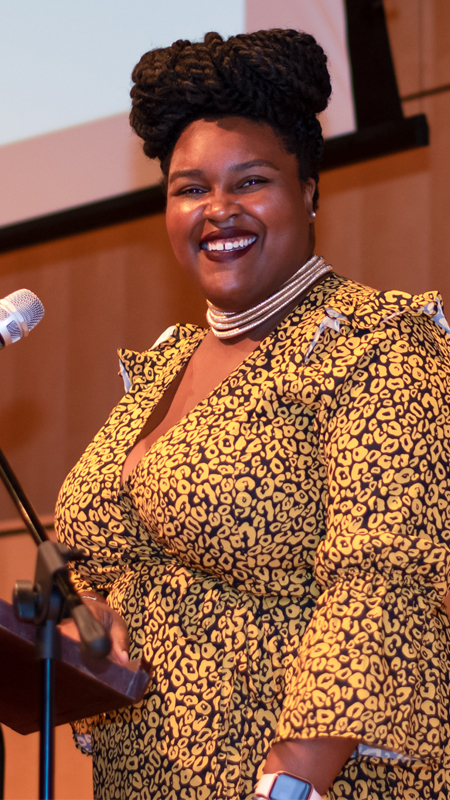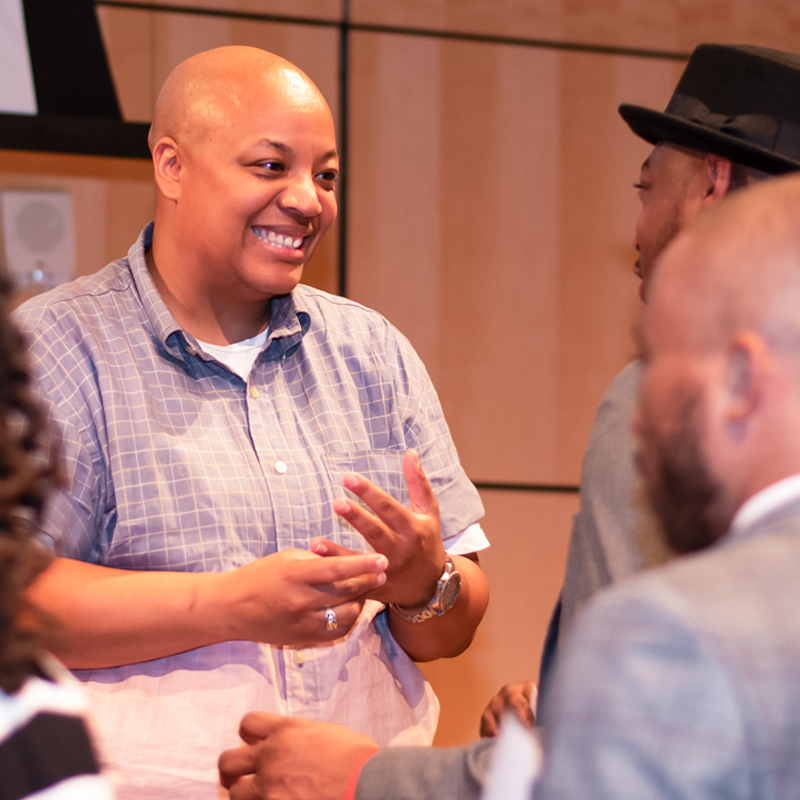At the launch of the partnership, Echoing Green knew that the social entrepreneurship field had to grow in order to sufficiently support and scale the work of Black leaders. The organization was grateful to join a bustling community of organizations creating deep, lasting social change for Black men and boys in the U.S. Throughout the Fellowship’s tenure, the BMA field continued to grow with the launch of the My Brother’s Keeper initiative at the White House, Cities United, and the Executive Alliance for Boys and Young Men of Color. Through their Fellowship, BMA Fellows were able to join a broader, collaborative ecosystem of actors dedicated to building thriving Black communities.
IMPACT ON THE FIELD
After years of challenges fundraising for the Fellowship, the organization encountered an inflection point in 2019 about how to scale support for social innovators of color. By the time the pandemic disrupted the world in 2020, the organization faced a harsh reality that interest in funding robust Fellowship programs, particularly those focused on early-stage social innovation leaders, was drying up.
Through the experience of building and running the BMA Fellowship, Echoing Green realized that the effort to effectively support and scale the work of Black social change leaders in this moment and beyond needed to be greater than the organization’s work alone. A sector-wide shift in grantmaking and philanthropy was required to ensure that Black leaders and Black-led organizations were resourced with the funds not just to survive, but thrive – an issue the sector is continuing to learn more about and address today.
To fully commit to racial equity work and mobilize a cross-sector ecosystem of actors, Echoing Green launched an organization-wide shift to racial equity, backed by the organization’s Racial Equity Philanthropic Fund. As part of this decision, Echoing Green sunset its targeted Fellowship programs, the Climate Fellowship and the Black Male Achievement Fellowship, with a commitment to weave the learnings from both programs into the organization as a whole. Namely, the importance of intersectionality as opposed to siloed approaches.
 [The BMA Fellowship] was radical in a philanthropic space that not only under invests but quite often disinvests in communities of color, especially Black communities. I think that was really the brilliance of Shawn Dove, Rashid Shabazz, and the Campaign for Black Male Achievement of thinking about a talent approach that centered Black leadership in disruptive approaches to driving social change. This notion of proximity as a form of expertise and asset-based thinking was incredibly powerful.
[The BMA Fellowship] was radical in a philanthropic space that not only under invests but quite often disinvests in communities of color, especially Black communities. I think that was really the brilliance of Shawn Dove, Rashid Shabazz, and the Campaign for Black Male Achievement of thinking about a talent approach that centered Black leadership in disruptive approaches to driving social change. This notion of proximity as a form of expertise and asset-based thinking was incredibly powerful.


